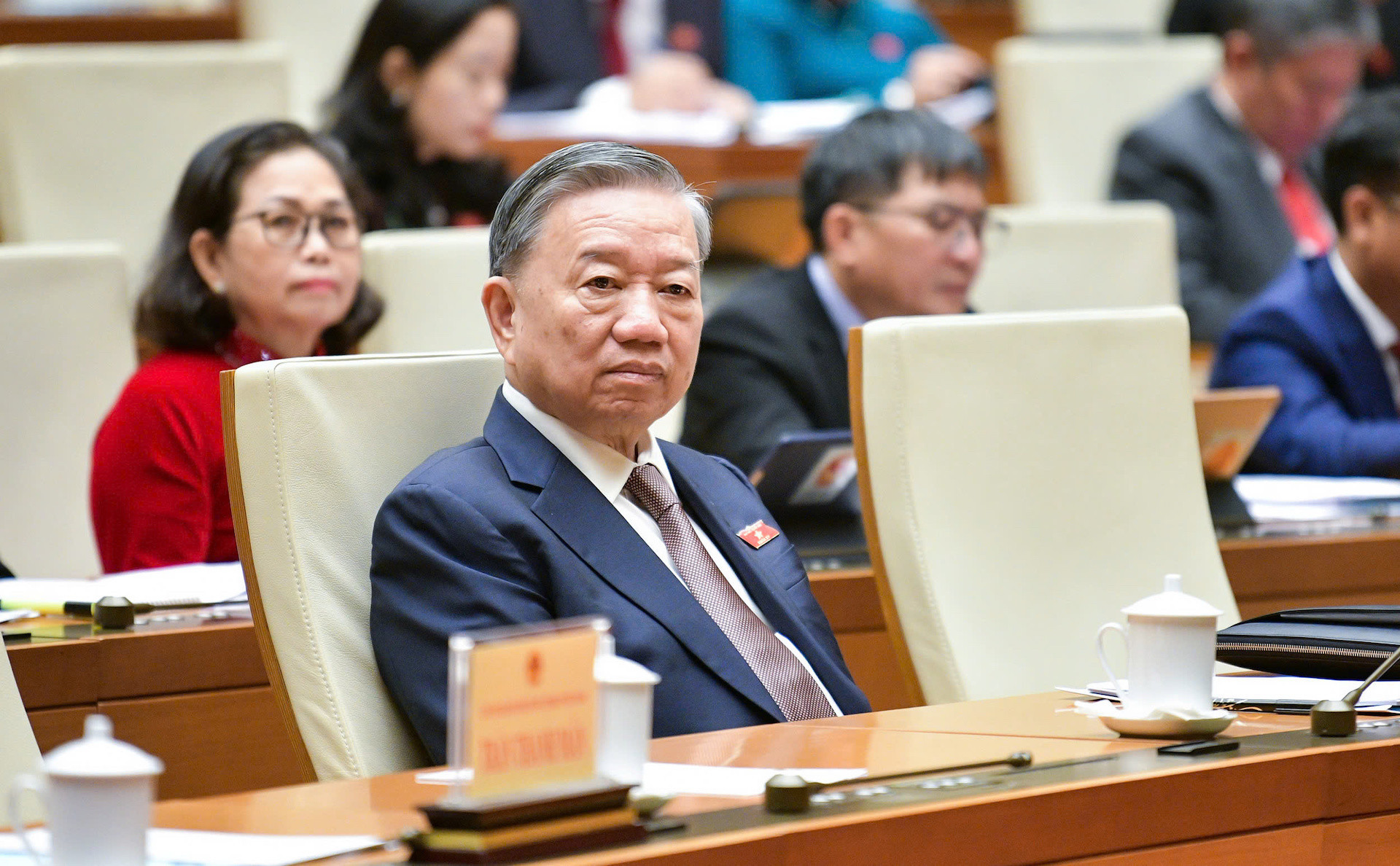
VietNamNet would like to introduce the opinions of Nguyen Dinh Cung, a respected economist, former head of the Central Institute of Economic Management (CIEM) about the speech delivered by the Party Secretary General To Lam at the opening session of the eighth conference of the 15th National Assembly on October 21, 2024.
Delivering speech at a National Assembly opening session is rarely seen. Lam, in his speech, pointed out the crucial bottlenecks in the legal system and put precise, concise, coherent and unambiguous requirements on the pressure of reforming the Vietnamese legal system.
Lam affirmed that institutional problems are the ‘bottlenecks of bottlenecks’. He also affirmed that law enforcement is weak which still cannot help clear the strong resources among people.
For many years, we just hear comments that our legal system is good, and problems only exist in law enforcement. Therefore, the comments by the Party Secretary General are frank and they are different from the previous comments.
He said that looking at the situation realistically is a practical requirement, because only correct assessments can help remove bottlenecks and come up with reasonable solutions.
In his speech, Lam emphasized that this is the responsibility of the whole political system, but great responsibilities are placed on the National Assembly, National Assembly’s agencies, National Assembly deputies and the government.
So, the Party Secretary General frankly pointed out that it is the National Assembly which has to first take responsibility.
Innovation in thinking
The first thing that needs to be done as instructed by Lam is changing the way of thinking.
He stressed that the only correct principle to be followed when building laws is both ensuring state management efficiency and liberating all productive forces, and unleashing all resources for development.
The legal system, especially economic laws, must create opportunities for development, encourage creativity, and unleash resources. For a long time, the legal system is designed with a focus on the functions of control and management.
He has requested to stop the mindset "if something is unmanageable, it must be banned". It is an unreasonable way of thinking which has led to a lot of bottlenecks under the forms of business conditions, standards and regulations which are unreasonable and unenforceable. This way of thinking limits creativity and eliminates development opportunities. This mindset can be seen clearly in electricity and gasoline price management.
Only when we change our way of thinking will we take renovation actions. Reforming and improving the quality of laws must go this way.
Secondly, the Party Chief has given directions about renovation in institutional content: accelerating decentralization with the principle "localities made decisions, localities do, and localities take responsibility for what they do".
Over many decades, many economic reforms in Vietnam originated from the practice in localities. However, it seems that local authorities have become more passive recently and dare not take daring actions as seen previously. Therefore, the new laws need to be designed in a way to encourage dynamism and creativity of local authorities because localities best understand their problems.
Regarding decentralization, it is necessary to define the role of the state and the role of the market. Resolutions all put emphasis on the need to develop various markets and production factors, but the spirit is not implemented in reality.
The resources of land, natural resources, capital and prices are still allocated by administrative orders, rather than being determined by market supply and demand. This is one of the crucial points of the reform process in Vietnam.
Thirdly, Lam has instructed to renovate the process of building and organizing law enforcement. Vietnam is following a closed law building process, under which law compilers don’t collect opinions from all relevant parties.
Fourthly, Lam emphasized the need to control power. I believe that there must be a lot of consultation to control power. Currently, laws are built in closed rooms.
Where should we start?
Let’s start from Lam’s instruction “standing on the land of Vietnamese practice to handle economic institutional problems”.
The first obstacle that needs to be removed is to untie thousands of pending projects nationwide. These projects can be evidence of cases or thousands of public and private investment projects that are stuck due to overlapping and incompatible laws.
Nguyen Dinh Cung